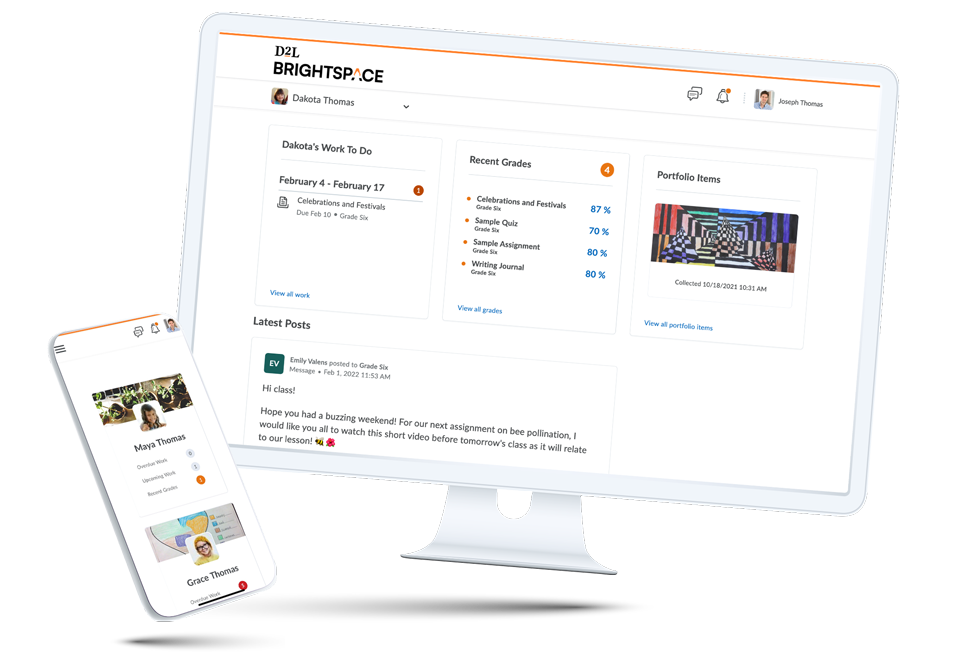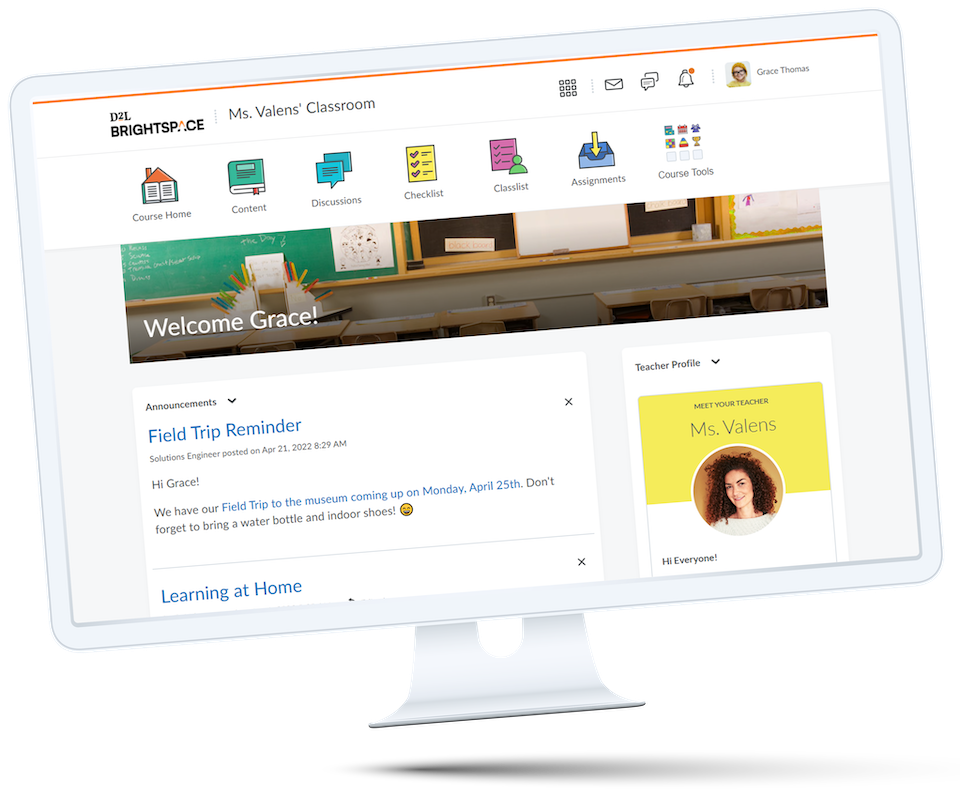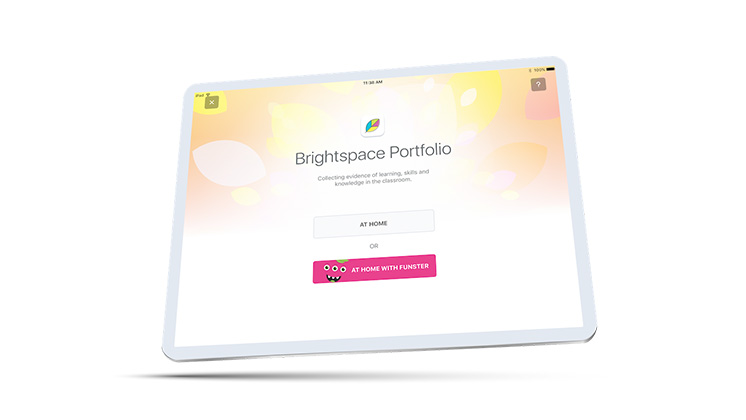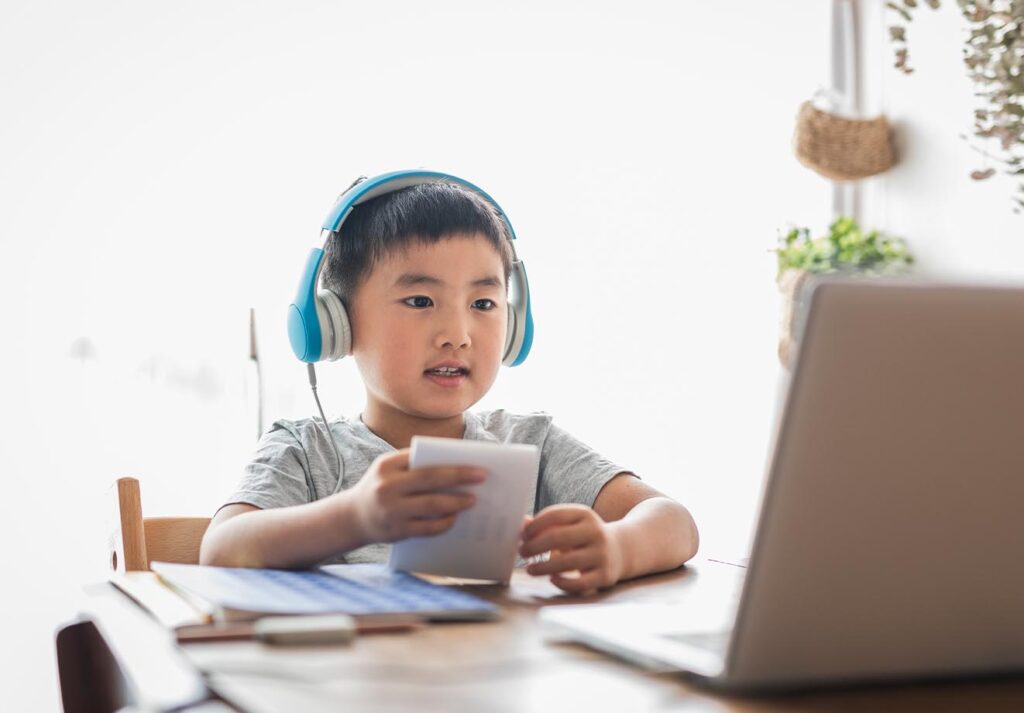D2L Supports Parents
A Guide to Brightspace and Supporting Learning at Home
Whether you are starting from scratch, or have experience teaching online, being able to pull together and share resources and content is important in these fast-moving times. Find a platform that allows you to gather resources in one place for your students to best support their at-home navigation of content. We know that many parents are now transitioning into facilitating learning at home, so we’ve put together this guide to help support parents with the resources they need to be successful.
Brightspace Parent & Guardian
Brightspace Parent & Guardian is a tool for authorized parents and guardians to see specific components of their child’s course, including the Activity Feed, shared Portfolio artifacts, graded assessments and feedback as well as upcoming Assignments and Quizzes. This helps parents engage with young learners and maintain awareness of upcoming work. It is not a parent-teacher communication tool—it’s a window into the classroom.
The Brightspace Parent & Guardian tool is enabled on a school board or school district level.
Watch this video to learn more about the Brightspace Parent & Guardian tool.
This guide in the Brightspace Community contains details about Brightspace Parent & Guardian and shows how parents can use it effectively.
The Brightspace Parent & Guardian app is available from the Play™ store and the Apple App Store®.
Portfolio
Brightspace includes a Portfolio tool (and stand-alone app) that was designed for students of all ages—making it easy to track and share their progress, reflections and learning experiences year over year. The Portfolio tool also allows teachers to capture evidence of learning and to record private anecdotal notes.
Brightspace Pulse
Brightspace Pulse is a mobile app that can help students stay connected and on track with their courses in Brightspace. It provides one easy view of course calendars, readings, assignments, evaluations, grades, and announcement items. The app can help learners make better decisions about how to handle workload, when to submit assignments, and when to prepare for tests. Real-time alerts let learners know when classes are canceled, rooms are moved, or new grades are available. The schedule view and weekly visualization enable learners to see at a glance what is due today, this week, and beyond across all their courses.
-
You can download Brightspace Pulse from the Play™ store or the Apple App Store®.
-
Brightspace was built with a responsive design to allow students and parents that don’t have the latest device to use any browser or device to access Brightspace.
Tips for Families
-
Stay Up to Date on Progress
Maintain regular communication with educators to understand your child’s progress and needs and how to support learning at home. Leverage Brightspace Parent & Guardian to stay up to date on grades, feedback and work that’s due soon.
-
Prioritize Wellness
Regardless of your child’s learning format, your continued attention to their questions and concerns is important to their well-being. Model remaining calm, patient and kind. Be flexible with your child’s learning. If schoolwork does not happen one day, that is OK! The following day is a new opportunity to try again.
-
Follow a Routine
A routine is helpful for maintaining overall well-being and academic achievement. Set regular hours for homework to help your child also make time for hobbies, physical activity and other interests.
-
Identify a Workspace
If you can, designate a space where students will study or complete schoolwork. Involve them in making that space their own by including books they love, art they created and other personal items that make the space feel welcoming.
-
Monitor Screen Time
Encourage learning activities that don’t require technology, such as reading, writing, math games and more. Avoid having students engaged with a computer screen for lengthy periods.



